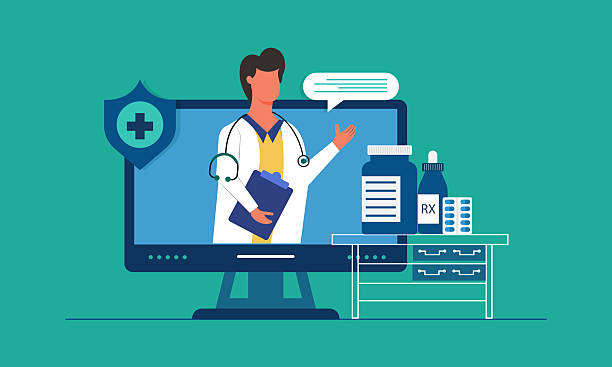In the last decade, mobile healthcare technology—often referred to as digital healthcare technology solutions —has rapidly evolved from simple fitness tracking apps to sophisticated platforms that integrate artificial intelligence (AI), remote monitoring, telemedicine, and personalized digital therapies. With more than 6.9 billion smartphone users globally, mobile healthcare is poised to reshape the way we approach wellness, prevention, diagnosis, and treatment.
As we look to the future,Digital Healthcare Solutions will not only bridge the gap between patients and providers but also democratize access to quality care, empower individuals to take charge of their health, and reduce the strain on healthcare systems worldwide. Let’s dive deeper into what the future holds for mobile healthcare and the trends shaping this exciting transformation.
1. From Monitoring to Managing Health in Real Time
Traditionally, mobile health apps have focused on tracking steps, calories, or heart rate. However, the future is about real-time management of chronic conditions such as diabetes, hypertension, asthma, and heart disease.
Wearable devices and connected apps will provide continuous streams of data, alerting both patients and doctors to early warning signs. For instance:
- Smartwatches can detect irregular heart rhythms and prompt timely medical attention.
- Continuous glucose monitors (CGMs) send live updates to mobile apps, helping people with diabetes manage insulin more effectively.
By turning data into actionable insights, mobile healthcare will shift from passive tracking to active health management.
2. AI-Powered Diagnostics at Your Fingertips
Artificial intelligence is set to become the backbone of mobile healthcare technology. AI-driven apps can analyze large volumes of patient data to detect anomalies, predict disease risk, and suggest next steps.
Examples of AI-powered mobile healthcare include:
- Skin cancer detection apps that analyze photos of moles and lesions with accuracy comparable to dermatologists.
- Chatbots and virtual assistants that triage symptoms and provide first-level medical advice.
- Predictive health analytics that identify patients at risk of chronic diseases long before symptoms appear.
The combination of mobile devices and AI will create personalized, accessible diagnostic tools available in everyone’s pocket.
3. The Rise of Telemedicine on Mobile Platforms
The COVID-19 pandemic accelerated the adoption of telehealth, and its integration into mobile healthcare is here to stay. Mobile apps now enable patients to book virtual consultations, share medical reports, and receive prescriptions—all without stepping into a clinic.
In the future, telemedicine apps will become more immersive and intelligent by incorporating:
- Augmented reality (AR) for guided physical therapy sessions.
- Wearable device integration for doctors to monitor vitals during calls.
- Multi-language AI translators to break down communication barriers between doctors and patients.
This will be particularly transformative for rural and underserved communities where access to healthcare professionals is limited.
4. Personalized Healthcare Through Data Integration
One of the most powerful promises of mobile healthcare technology lies in personalized medicine. By integrating health data from various sources—fitness trackers, electronic health records (EHRs), diet apps, and genetic testing services—mobile platforms can create a holistic health profile of each individual.
Imagine a mobile app that not only tracks your workouts and diet but also considers your genetic predispositions, medication history, and lifestyle habits to provide tailored health recommendations. This shift toward hyper-personalized care will help prevent disease, improve treatment adherence, and optimize overall well-being.
5. Blockchain and Data Security in Mobile Healthcare
With the explosion of mobile health data comes heightened concerns around privacy and security. Patients are increasingly aware of who has access to their health data and how it’s being used.
Blockchain technology is expected to play a crucial role in the future of mHealth by:
- Enabling secure, decentralized storage of patient records.
- Allowing patients to control and grant permissions for who can access their data.
- Enhancing transparency in clinical trials and medical research.
Stronger data security measures will build trust in mobile healthcare systems, encouraging broader adoption.
6. Mental Health and Wellness Apps Go Mainstream
The stigma around mental health is slowly fading, and mobile technology is playing a pivotal role in this cultural shift. Already, millions of people use apps for meditation, stress management, and therapy.
Looking forward, mental health apps will become even more sophisticated by offering:
- AI-driven mood tracking through smartphone usage patterns.
- Voice and facial recognition analysis to detect signs of stress or depression.
- Virtual therapy sessions with licensed professionals accessible anytime, anywhere.
As mental well-being becomes a key part of healthcare, mobile platforms will ensure accessible, affordable support for all.
7. Remote Patient Monitoring and Smart Hospitals
Mobile healthcare technology will not exist in isolation—it will integrate closely with hospital systems and healthcare infrastructure. Remote patient monitoring (RPM) will become a cornerstone of smart hospitals, where patient data flows seamlessly between homes and healthcare providers.
Examples include:
- Post-surgery recovery apps that track wound healing progress via smartphone cameras.
- Heart patients using connected devices that notify doctors of sudden changes in vitals.
- Elderly care platforms that detect falls and notify caregivers instantly.
This level of connectivity will reduce hospital readmissions, lower costs, and improve patient outcomes.
8. The Role of 5G and Next-Gen Connectivity
The rollout of 5G networks will significantly enhance mobile healthcare experiences by enabling faster, more reliable connections. Features such as real-time video consultations, high-resolution medical imaging, and remote robotic surgeries will become feasible on mobile devices.
For patients, this means smoother app experiences and more reliable telehealth consultations. For healthcare providers, it opens the door to advanced diagnostic and treatment tools powered by cloud computing.
9. Global Health Equity Through Mobile Technology
One of the most transformative aspects of mobile healthcare is its potential to reduce healthcare inequalities. In regions with limited healthcare infrastructure, mobile devices often serve as the primary gateway to medical services.
Future mHealth innovations will:
- Deliver basic diagnostic tools in remote areas.
- Provide maternal and child health education through mobile apps.
- Enable digital health passports for vaccine tracking and disease prevention.
By leveraging mobile technology, even low-income communities can gain access to life-saving healthcare resources.
10. The Future: Preventive, Predictive, and Personalized Care
Ultimately, the future of mobile healthcare technology is about shifting from reactive care to proactive health management. Instead of waiting for illness to strike, mobile apps and devices will empower people to predict risks, prevent disease, and personalize care to their unique needs.
This transformation will not only improve patient outcomes but also alleviate the burden on overworked healthcare systems worldwide.
Final Thoughts
The future of mobile healthcare technology is bright, disruptive, and deeply human-centered. From AI-powered diagnostics and telemedicine to mental health support and global health equity, mobile platforms are redefining the way we access and experience healthcare.
As technology continues to evolve, one thing is clear: the smartphone will no longer just be a communication device—it will be a lifelong health companion, guiding us toward healthier, longer, and more empowered lives.









